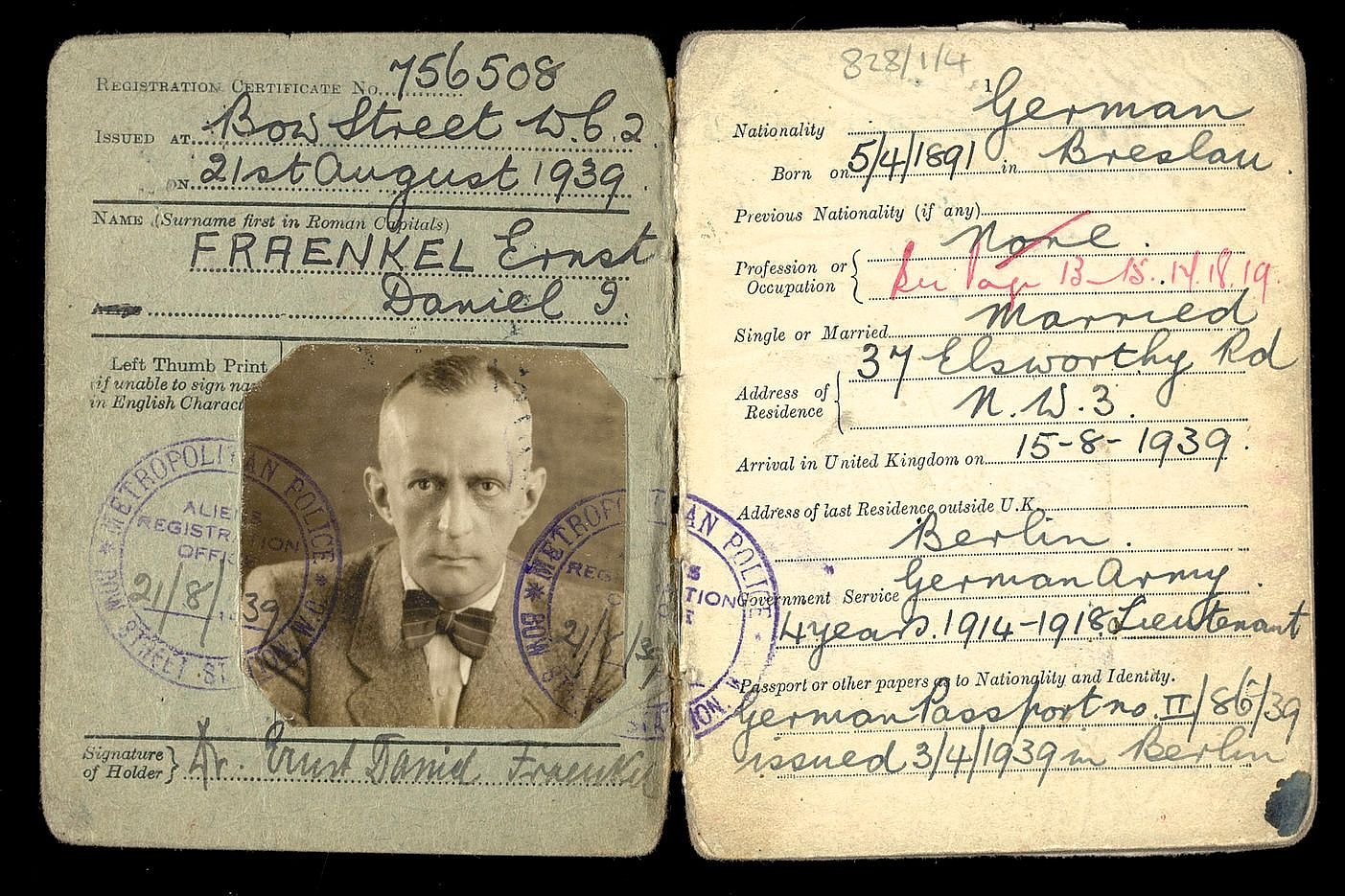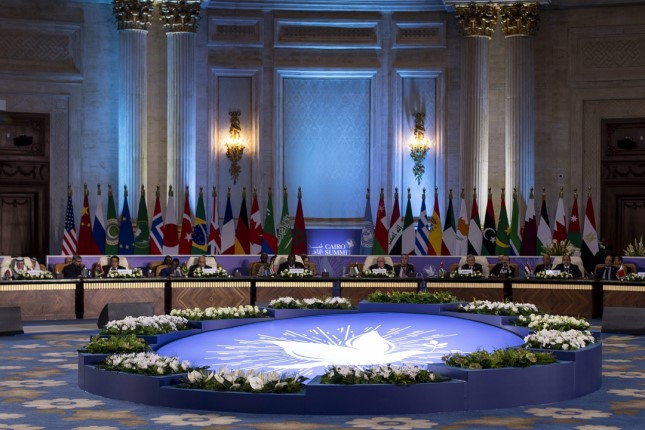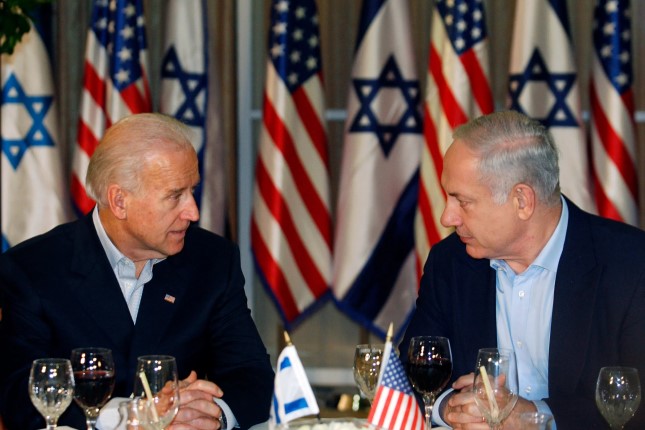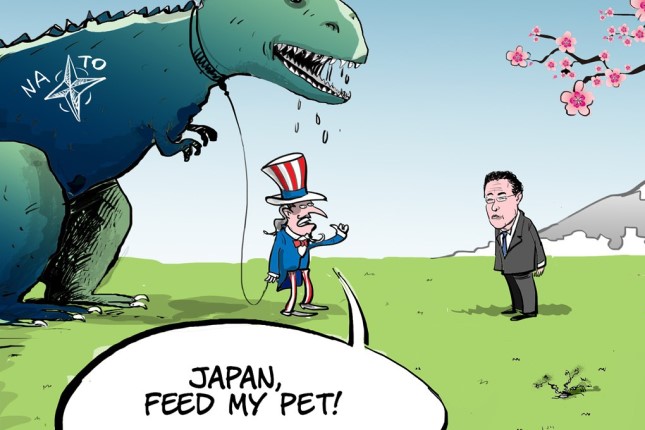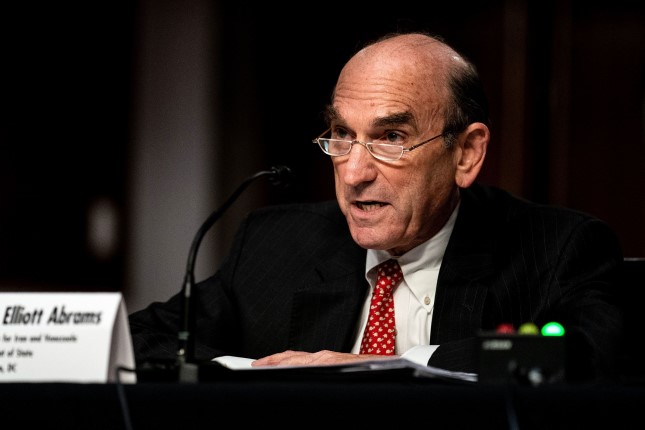Ever since the Six-Day-War (1967) and the occupation of Palestinian territories, Israel has witnessed the rise of the Messianic far-right settler Jews. In my The Fall of Israel, I describe in detail this process, which entered a new stage after the assassination of Prime Minister Yitzhak Rabin and the effective demise of the “peace process.”
The process also intensified the march of the settlers and their proponents into the Israeli institutions, while openly advocating the overthrow of Israel’s secular democracy, the Judeazation of the occupied territories (West Bank, Gaza), Jewish supremacy and racist violence, particularly against Palestinians.
What made this quasi-legal infiltration of the democratic institutions possible was the continuous US military and diplomatic support, coupled with arms transfers and financing, and Europe’s effective indifference.
One way to look at the progression of the quasi-official state violence in Israel is the narrative describing the rise of the Messianic far-right as the march of lawlessness. Yet, such narratives do not adequately explain the existing tensions between the civil bureaucracies and the apocalyptic reformers in Israel.
In The Fall of Israel, I present an alternative way to depict that progression, based on the idea of a “dual state.” This is the notion that the famous German-Jewish lawyer Ernst Fraenkel used to explain how the Nazi party exploited democratic institutions, which it then undermined.
Emergency powers to undermine democracy
At the eve of World War II, Ernst Fraenkel fled from Nazi Germany to the United States, where he published his master treatise, The Dual State (1941). Fraenkel saw the analysis of the political system of the Nazi state as “a contribution to the theory of dictatorship.”
Fraenkel knew the system intimately. In the Weimar Republic, he had been a leading socialist jurist. And as a lawyer he had represented political defendants in court, mainly Jews targeted by the Nazi regime. Eventually, as a dissident, he worked in the underground with several resistance groups until his immigration to America in the late 1930s.
What worried Fraenkel was the gradual perversion of the democratic institutions of the Weimar Republic from 1918 to 1933. During that period, the Nazi Party took power as Hitler was able to use emergency powers to undermine constitutional governance and suspend civil liberties.
How could it happen? How could democracy collapse and Germany end up under a one-party dictatorship? Fraenkel’s simple response was: the dual state. Democratic institutions remained, but mainly as pale shadows. In particular, he showed how the decisions of the courts – as façades rather than effective institutions – precipitated the progress of Nazism in Germany.
Rise of the “Dual State” in Nazi Germany
In Fraenkel’s view, the Nazi state had two sides. One featured the normative state, which was “an administrative body endowed with elaborate powers for safeguarding the legal order as expressed in statutes, decisions of the courts, and activities of the administrative agencies.” It represented the rule of law, or what was left of it.
The other side of the dual state referred to the prerogative state; that is, a “governmental system which exercises unlimited arbitrariness and violence unchecked by any legal guarantees.” It excelled in unrestrained artificiality, including violence, unimpeded by any rule of law.
Fraenkel highlighted the constant friction between the traditional judicial bodies representing the normative state, and the agencies of the prerogative state, the instruments of the dictatorship. It was not the courts’ purpose to foster extremist radicalism, but as they did tolerate such legal revisionism, the courts were virtually digging their own graves.
In the postwar era, the idea of the dual state influenced the postwar debates about the Third Reich. But Fraenkel’s theory was not just about Nazi Germany. It was about the potential of political regression in industrialized democracies and thereby about Israel as well.
Contemporary Israel is not Nazi Germany and the early 2020s aren’t the early 1930s. Nor has Israel’s constitutional framework been replaced by the “leader principle” (Führerprinzip) as the basis of executive authority, as of yet. Yet, there are distressing parallels.
Persecuted “aliens” from Weimar Germany to Israel
Emerging first as a fringe movement in the 1970s, the rise of the Messianic far-right was accelerated by the right-wing Likud coalitions since the 1980s. After the failure of underground violence, these groups chose to march into and infiltrate the very democratic institutions they despised, particularly after the Oslo Accords in the 1990s. Through these decades, their clout was reinforced by massive U.S. military aid and Jewish-American financiers, particularly donors representing revisionist Zionism, as evidenced by the many examples underscored in The Fall of Israel.
In Germany, Nazis benefited from the Völkisch ideology, the German ethnic nationalist movement, served as a glue tying together different social and economic groups. In Israel, Jewish ethnonationalism, in varying degrees, has had a similar role cementing political, social and cultural cohesion.
In Germany, the Völkisch nationalists saw the Jews as “aliens” who thus had no business in the new Germany. In Israel, the Jewish far-right perceives the Arabs as aliens in the Jewish state thus favoring the expulsion of the Palestinians but tolerating a minority of Israeli Arabs, to preserve a semblance of a democracy.
German expansionism was legitimized with notions like Lebensraum that, in practice, translated to the ethnic cleansing and genocidal atrocities of Generalplan Ost, which sought to enslave and starve much of Eastern Europe. In Jewish ethnonationalism, “Greater Israel” is the apocalyptic ideology fueling the settlements and efforts to expand Israel’s boundaries, resulting in ethnic expulsions and atrocities, all in the name of “national security.”
With the Gaza War, the Strip has been devastated so thoroughly that most of it will be uninhabitable after hostilities. With the fog of the war, the occupation in the West Bank has effectively shifted from a de facto toward a de jure annexation. Hence, the dramatic increase in settler violence with the tacit support by military and security authorities.
Explosion of Settler Violence Incidents
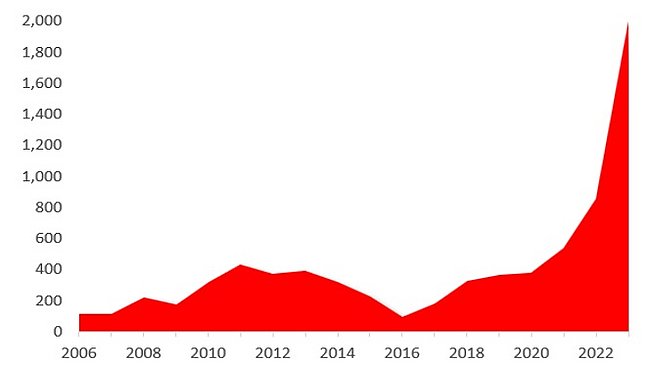
Mythologies of ”blood and soil”
The Völkisch precedent had relied on the idea of “blood and soil,” fueled by the organicist metaphors of a singular, unified and racially pure social body. It was essentially a frustrated rebellion of lower-middle-class Germans who were sidelined and ignored by the ruling elite of German junkers, industrialists and military, and laboring poor whose socialist leaders had been taken down. The values of romantic nationalism and idealized agrarianism were typical to Germany where industrialization and urbanization, which had uprooted an entire generation of Germans, was still relatively recent.
In Jewish ethno-nationalism, it is the mythologized God-given Eretz Israel, the Land of Israel, that ensures collective singularity and racial purity.
For all practical purposes, this ideology relies on the longstanding resentment by poorer Jews from Arab countries, assertive religious Jews and the ultra-orthodox, the Messianic far-right, coupled with free-market conservatives, ideological Likudniks and the settler zealots.
Among the Messianic far-right, the parallel of the Völkisch “blood and soil” means Jewish supremacy coupled with the Eretz (Land) of Israel. In the 1930s Germany, peasants were celebrated as Nazi cultural heroes and forces of German racial stock and history. In Israel, the champions of the settlers portray them similarly in quasi-mystical terms as pioneers of a glorious future.
For years, historians of Nazi Germany like Moshe Zimmermann have drawn upon the legacy of Weimar Germany to understand the endangerment of Israeli democracy by authoritarian, nationalist and racist forces, “to determine where on the chronological calendar of the Weimar Republic we in Israel were situated. Now, in 2023 we are wondering: Are there not features of the regime in Israel that are familiar from German history after 1933?”
In this trajectory, the Israel of the Messianic far-right has the most prominent role as the romanticism of blood and soil is replaced with apocalyptic eschatology.
Messianic pretext for Jewish autocracy
Following its election triumph in fall 2022, the Messianic far-right saw the Israeli normative state as an unwarranted obstacle to more effective, autocratic governance. The administrative body of the state was all nice and fine, but these elaborate powers that were designed to safeguard the legal order were ill-suited to the national security contingencies that were posing existential threats to Israel. The Jewish state required institutions that served the Jewish people, not its enemies.
With the 2018 Jewish nation-state bill, the prerogative state began to play an ever-greater role in Israel at the expense of the normative state. Responding to this effort at a “judicial regime coup,” hundreds of thousands of Israelis stormed the streets protesting it, a protest which eventually was diluted by demonstrations related to Israeli hostages and the Gaza War.
Yet, most Israelis had voted for the coalition parties that made up the Messianic far-right, which is now subverting the normative state by the exercise of “unlimited arbitrariness and violence unchecked by any legal guarantees.”
As long as the dual state prevailed, the civil servants of the normative state were still able to keep the Messianic far-right of the prerogative state at bay. But to the latter, the Gaza War was a historical, divinely-ordered opportunity not just to take over and annex the occupied territories but also to dominate the government and its vital bureaucracies.
So, when Prime Minister Netanyahu opened the doors of his government to these far-right Messianic extremists in order to achieve a majority coalition, he let the foxes into the henhouse, for a purpose. It paved the way not just to a rising tension between state bureaucracies and state violence, but to the integration of these dual realities.
“Death to the Arabs!”
These shifts have come with a price: the rise of the Israeli internally conflicted dual state, facing an attendant shrinkage of the rule of law in the normative state and the increasing legal arbitrariness and sanctioned violence by the prerogative state.
“There is no police in Israel”
The Messianic far-right has seized central elements of the bureaucratic apparatus and its administrative procedures. Hence, too, national security minister Ben-Gvir’s effort to fill the key positions of national police, security and military with like-minded authorities, even at the risk of incompetence, insecurity and escalation.
At the eve of fall 2024, Ronen Bar, the head of Israel’s security service Shin Bet, wrote an “emergency letter” addressed to PM Netanyahu, the cabinet and the attorney general, warning that “the Jewish terror leaders want to make the system lose control, the damage to Israel is indescribable.” Police incompetence and public legitimacy have led to the expansion of Jewish terrorism, emboldened by “a sense of secret backing” from police. The letter sparked a fiery exchange between Netanyahu and Bar during a prior security cabinet meeting that touched on the deadly settler pogrom in Jit, a Palestinian town west of Nablus:
Netanyahu: “Have we made any arrests?”
Bar: “Two.”
Netanyahu: “Why only two? Why not more?”
Bar: “That’s the role of the police. There’s no police in Israel.”
It was a stunning admission and appeal by the head of Israel’s internal security. Jewish terror, Bar warned, was jeopardizing Israel’s existence, both in the occupied territories and in the volatile border areas.
Initially, Bar was expected to serve as director until 2026. Yet, in March 2025 PM Netanyahu fired him claiming to have “lost trust” in him. In reality, Bar was fired after he started to investigate the so-called “Qatari Connection Affair”; that is, the Qatari involvement and influence in the Prime Minister’s Office. Refusing to leave without a fight, Bar submitted an affidavit to the court arguing that Netanyahu was demanding a personal loyalty, while expecting his Shin Bet to act against anti-government protesters and the Supreme Court.
Two weeks after the SC declared Bar’s dismissal “unlawful,” Netanyahu forced the premature end of Bar’s term in mid-June.
The Pyrrhic triumph
Step by step, Israel’s prerogative state is surpassing and suppressing its normative state. And given a unitary Jewish state – the ultimate objective of the Messianic far-right – it would effectively overwhelm the normative state.
Indeed, Israel is on the threshold of a significant, reality-changing process that will deliver indescribable damage to itself and likely world delegitimization. Shin Bet expected revenge attacks to ignite “another front in the multifront war we’re in, bringing more people into the terror circle to carry out their revenge.”
But the price of these steps is the expansion of the prerogative state, which will eventually undermine the state of Israel itself.
Source: AntiWar.com.
